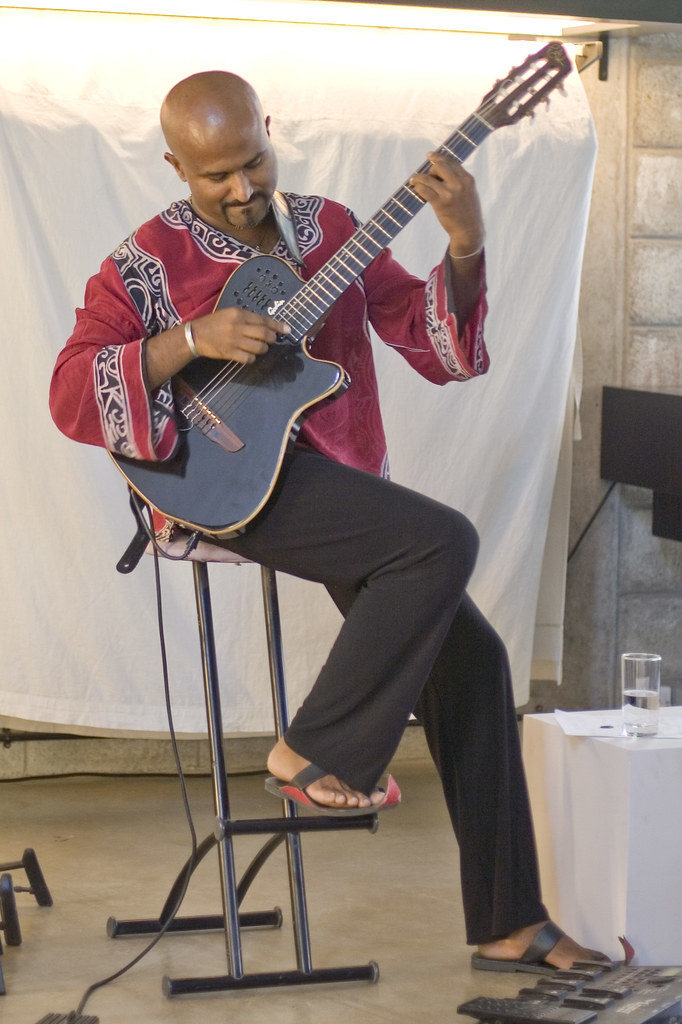Jazz or Rock Guitar – Sensing Suppressed Ongoing Physical Aches and Pains (Electric)(Musicians)(Psychology)(Pain)(Strain)(Injuries)(Posture)(Alexander Technique)(Albuquerque)
This ebook, An Alexander Technique Approach to Jazz and Rock Guitar Technique, is published on this website in a PDF format. It is very detailed and practical, and it will give you the physical tools you need to take the limits off of your ability to create the accurate guitar technique you want without sacrificing your body.
This ebook is also for sale on all AMAZON websites in a KINDLE format.
Located in Albuquerque, New Mexico, U.S.A. (MOVEMENT THERAPY)
WHEN YOU ARE FULLY WILLING TO SENSE THE SUPPRESSED ACHES AND PAINS IN YOUR BODY, YOU ARE READY TO MAKE CHANGES TO THE ELEMENTS OF YOUR JAZZ OR ROCK GUITAR TECHNIQUE THAT CAUSE THESE ACHES AND PAINS.
The above statement may seem rather obvious, but for so many hurting jazz or rock guitarists it has been long term aches and pains that the player has pushed away like a bad headache. There are only three cures for a long term headache. Sit down and observe the headache until it passes, take an aspirin, or both.
There are three cures for the aching jazz or rock guitarist. Sit or stand and observe your technique, change your technique, or both.
When the jazz or rock guitarist truly observes his or her technique, he or she is sensing what is happening whole body and where there are consistent aches and pains as the guitarist plays. Does this mean the guitar player needs to make major changes to his or her playing? Not necessarily. If the jazz or rock guitarist can release any excess tension from head to toe, and the guitar player has good posture, then the player may realize that he or she has been playing with excessive tension throughout the whole body, and this has been what’s causing the aches and pains.
What I just described is the observing part. Simply, you cannot observe your technique and sense whether you’re hurting without making or causing change to your technique and posture. To make sure it is good change, you want to release the excess tension rather than tense even more against the aches and pains you’ve brought to consciousness.
Once you’ve brought to consciousness where you’ve been hurting and begin to release the tension, you will probably become aware of a whole new level of discomfort in your body. That discomfort is the extra physical work you are doing unnecessarily to support a body slumping over overarching as you play the jazz or rock guitar.
Now would be a really good time to bring balanced whole body posture to your jazz or rock guitar playing. Because if you sit or stand with the guitar with an overarched back or hunkered down slumping as you play, then you can never truly release the excessive tension out of your arms and shoulders. When you are fully upright using the minimal amount of musculature with a free neck and a head released leading a lengthening spine, then you can truly release the tension throughout your whole body through observation and intention.
What I just described is doing both. You are observing your technique and applying the Alexander Technique principles of good body use to your whole body, so that observation and intention come together to help you play the jazz or rock guitar without hurting.
Now, not having any aches or pains on the guitar is a very good thing, but it may not be enough. IF YOUR POSTURE IS BALANCED AS YOU PLAY THE JAZZ OR ROCK GUITAR, BUT YOU CANNOT PLAY WHAT YOU WANT WITH EASE, THEN YOU HAVE NOT FULLY CREATED A GUITAR TECHNIQUE THAT WORKS.
To create a jazz or rock guitar technique that truly works, a technique that brings ease to playing the difficult jazz or rock guitar music, you have to bring the Alexander Technique principles of good body use to the specifics of your guitar technique. This means you really have to explore if what you do from your elbows to your fingertips works as you play.
This means, you want to see if how you use your fingers, wrists, and arms is truly to your loving advantage. So, explore how you use your whole body on the jazz or rock guitar, and examine what you have believed is the right way to play the guitar and keep what works and release what doesn’t.
